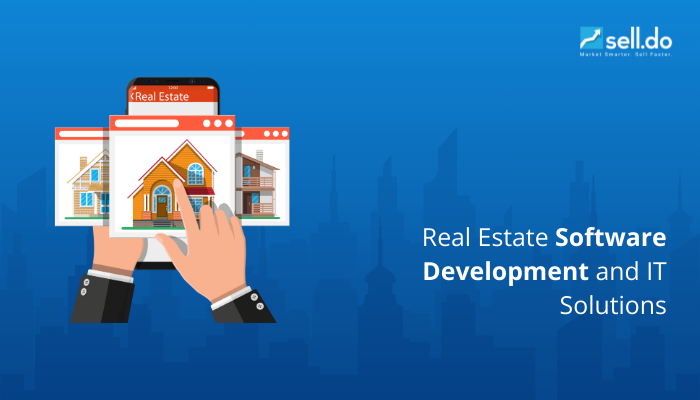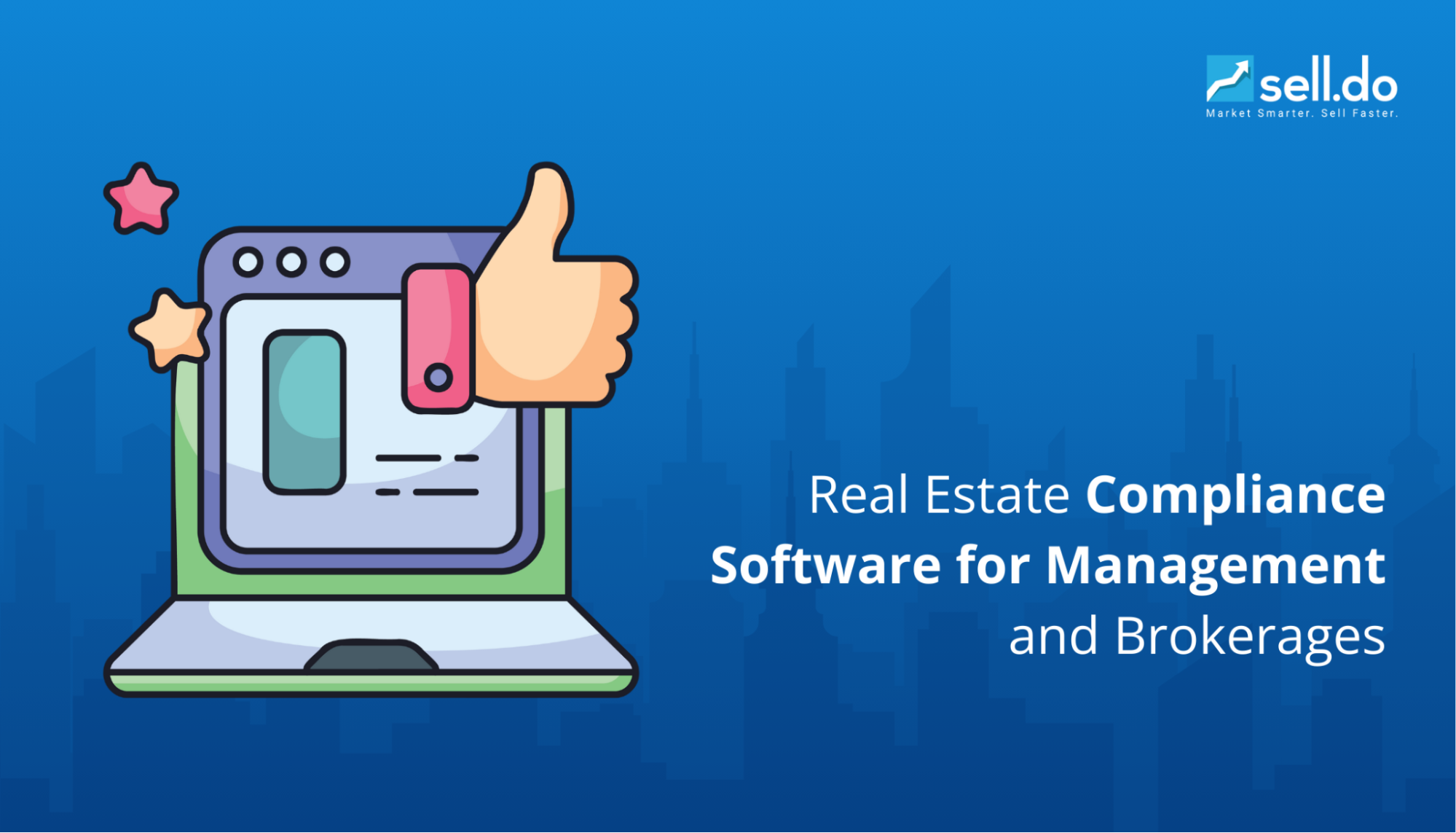Managing residential construction projects and home sales involves more than just building houses. Keeping track of leads, coordinating with buyers, and ensuring timely communication can get overwhelming if you don’t have the right tools in place. Many construction companies struggle with scattered data, missed follow-ups, and inefficient workflows, making it harder to close deals and deliver a smooth customer experience.
A CRM built for construction companies helps streamline all tasks and track customer interactions so you can have better coordination within your teams. It keeps everything organized, from initial inquiries to final handovers. But with so many options available, how do you choose the right one?
In this blog, we’ll explore some of the best CRM solutions for construction companies to help you find the perfect fit for your business.
The Role of CRM Software in Residential Construction
A CRM designed for construction companies helps builders and developers track leads, maintain clear communication, and manage contracts efficiently. It ensures that no inquiry is missed and follow-ups happen on time, so the buyers stay informed throughout the process. Strong customer relationships lead to higher satisfaction, repeat business, and positive referrals.
Residential construction projects can be challenging as they involve coordinating multiple teams to keep up with project timelines and budget constraints. A centralized system like a robust CRM prevents miscommunication and helps organize workflows. It also tracks progress, automates key processes, reduces errors, and improves overall productivity. Here’s how a CRM for home builders can help:
- Centralizes customer data, inquiries, and communication history.
- Automates follow-ups and sends timely updates to buyers.
- Tracks project timelines, contracts, and payment schedules.
- Helps teams collaborate by keeping all information in one place.
- Improves lead conversion with better organization and insights.
Now, to get the most out of a CRM system, it’s important to understand the key features that support you at every stage of the project lifecycle.
Also, check our blog: Top Real Estate Social Network Platforms and Their Strategies
Key Features of CRM Software for Builders

A CRM system for a construction company ensures smooth communication, accurate project tracking, and better decision-making. Here are key features to look for:
- Customization and Flexibility: A CRM should adapt to specific business needs, from tracking leads to managing client interactions.
- Detailed Project and Lead Tracking: Monitor leads, track project progress, and maintain a clear view of every stage, ensuring nothing falls through the cracks..
- Workflow Automation and Communication Tools: Automate repetitive tasks, set reminders, and enable team collaboration with built-in communication tools..
- Estimating and Quoting Capabilities: Generate accurate cost estimates and quotes, helping builders plan budgets and win client trust.
- Mobile Access and Integration: Access project data on the go and integrate with scheduling and project management tools for a connected workflow.
Next, let’s take a look at the best CRM for construction companies.
If you’re looking to drive more leads for your real estate business, check out our blog: 10 Strategies to Get Leads for Your Real Estate Business.
Top 6 CRM Software for Residential Builders
Here’s a look at some of the top CRM software solutions tailored for residential construction, designed to streamline sales, project management, and customer relationships.
Sell.Do – Dedicated CRM for Real Estate

Rating: 4.8/5
Sell.Do is a dedicated CRM for real estate and residential construction businesses. Unlike generic CRMs, it understands industry challenges like lead drop-offs, inventory management, and sales cycle optimization. It offers automated lead nurturing, omnichannel communication, and real-time project tracking. For home builders, this means better client engagement, improved conversion rates, and streamlined operations.
Key Features of Sell.Do
- Lead NurturingAutomatic follow-up emails, lead assignments, and real-time activity tracking ensure that no lead is left behind. Sell.Do ensures every lead gets the attention it deserves, improving conversion rates.
- Media Planning and Cost AttributionManage campaigns across multiple channels, including email, social media, and paid ads. Sell.Do integrates with property portals to automatically capture leads, making it easier to stay on top of your outreach efforts.
- Pre-Sales Pipeline ManagementKeep track of your sales pipeline with valuable insights into prospects’ activity. Sell.Do helps you monitor lead follow-ups and ensure organized, up-to-date sales data.
- Site Visit ManagementEquip your reception or GREs with a tablet or handheld app to quickly identify customers and update their details with a single click, ensuring a smooth and efficient site visit process.
- Channel Partner ManagementStreamline communication and collaboration between brokers and sales agents. Sell.Do helps increase efficiency, improves sales visibility, and boosts overall productivity.
- Real-Time Inventory ManagementGain visibility over your project inventory, including towers and individual units, with real-time insights. With Sell.Do’s sales analysis based on 30+ attributes, it helps forecast future inventory movement and optimize sales efforts.
Pricing: Custom
2. HubSpot CRM

Rating: 4.5/5
HubSpot CRM provides the best CRM for construction companies looking for scalability and data-driven decision-making. It centralizes customer interactions, helping home builders track leads, manage relationships, and automate follow-ups. The platform’s reporting and analytics tools offer deep insights into sales performance, making it easier to optimize sales strategies.
Key Features of HubSpot CRM
- AI-Driven Lead Scoring Automatically prioritize leads based on engagement and likelihood to convert.
- Pipeline AutomationStreamline follow-ups and reduce manual data entry.
- Custom DashboardsGenerate reports for sales performance and customer insights.
Pricing: Free and paid plans available
HubSpot CRM offers several dedicated pricing plans for marketing, sales, service, and content. It also offers a limited free plan, where you can try all the tools to find the right one.
Recommended: Effective Techniques for Real Estate Follow-Up Systems
Salesforce

Rating: 4.4/5
Salesforce is a highly customizable CRM that adapts to the unique needs of residential construction companies. It allows seamless integration with project management, accounting, and communication tools, making it the best CRM for construction companies that need an all-in-one solution. Its AI-powered analytics and workflow automation help improve project efficiency and customer relationships.
Key Features of Salesforce
- Third-Party Integrations:Connect with ERP, project management, and finance software.
- AI-Powered Insights:You can get real-time data on sales trends and customer behavior.
- Custom Workflows: Adapt CRM functions to match construction-specific processes.
Pricing:Salesforce offers several pricing models as per your business size:
- Starter Suite: $25/user/month
- Pro Suite: $100/user/month
- Enterprise: $165/user/month
- Unlimited: $330/user/month
- Einstein 1 Sales: $500/user/month
4. Pipedrive

Rating: 4.3/5
Pipedrive is an affordable CRM that simplifies pipeline management for residential builders and developers. It offers a visual sales pipeline that helps teams track every lead and deal in real time. This CRM is the best choice for construction companies focused on simplifying sales processes without the complexity of enterprise-level solutions.
Key Features of Pipedrive
- Visual Sales Pipeline: You can easily track leads and deals with a drag-and-drop interface.
- Automated Follow-Ups: Reduce lead drop-offs with scheduled reminders and email automation.
- Custom Deal Stages: Tailor sales funnels to match different project phases.
Pricing:
- Essential: $14/user/month
- Advanced: $24/user/month
- Professional: $49/user/month
- Power: $59/user/month
- Enterprise: $79/user/month
5. Paramantra

Google Reviews: 4.2/5
Paramantra is designed for real estate businesses that need AI-driven automation and deep customer insights. It offers predictive analytics that helps home builders identify potential clients and improve conversions. Its robust telephony and communication tools ensure no lead is lost due to delayed responses.
Key Features of Paramantra CRM
- AI-Based Lead Prioritizations: Identify high-potential leads using predictive analytics.
- Integrated Call Tracking: Log, record, and analyze customer interactions for better engagement.
- Customizable Reports: Get detailed insights on sales performance and marketing impact.
Pricing:
Custom
6. B2BBricks

Rating: 4.8/5
B2BBricks is the best CRM for construction companies that want a mix of lead management, sales tracking, and project coordination. It provides real-time data on client interactions, helping home builders close deals faster. With built-in marketing automation and task management, B2Bricks ensures smoother collaboration between teams.
Key Features of B2Bricks
- Centralized Lead & Client Database: Store and manage all customer interactions in one place.
- Automated Task Management: Assign tasks, set deadlines, and track progress efficiently.
- Real-Time Sales Tracking: Monitor deal progress and sales performance with live updates.
Pricing:
- Web: ₹10,000/p.a
- Business: ₹22,000/p.a
- Corporate: ₹32,000/p.a
- Enterprise: ₹48,000/p.a
That was our curated list of the best CRM for construction companies. Take your time to review each tool and find the one suitable for your business. To understand its true value, let's explore the key benefits it brings to residential construction.
Benefits of Using CRM in Residential Construction
A CRM system for construction companies does more than just manage contacts. It helps home builders streamline operations, improve client interactions, and make data-driven decisions. Here’s how the right CRM can benefit your business:
- Improved customer relationships and loyalty:Keep track of client interactions, follow-ups, and preferences to provide personalized service. Stronger relationships lead to higher customer satisfaction and more referrals..
- Enhanced project management and collaboration:Ensure smooth coordination between teams by tracking tasks, deadlines, and progress in one place. This reduces delays and improves efficiency.
- Centralized data storage for better trend analysis:Store and access critical project, sales, and customer data in one system. Analyzing trends helps builders make informed decisions and optimize strategies.
- Automated workflows to reduce manual tasks: It can automate lead assignments, follow-ups, and reporting to reduce manual errors and free up time for more strategic tasks.
- Scalability to support business growth:As your business expands, a CRM grows. It accommodates increasing leads, projects, and customer interactions without compromising efficiency.
Before deciding, here are a few key factors to consider when choosing the right CRM for home builders.
Choosing the Right CRM for Home Builders
Selecting the best CRM for construction companies requires careful consideration. Residential developers need a system that aligns with their processes, simplifies project tracking, and enhances client relationships. Here’s how to find the right fit:
- Identifying Specific Business Needs and GoalsDetermine what you need from a CRM—whether it’s lead management, project tracking, or automation—so you can choose software that directly supports your objectives.
- Evaluating CRM Features That Support Those NeedsCompare tools based on essential features like workflow automation, mobile access, and integration with other software to ensure they meet your business requirements.
- Testing Software Through Demos or TrialsBefore committing, explore the CRM’s interface, usability, and features through a trial. This helps you understand how well it fits into your daily operations.
- Gathering Feedback from Users to Inform Decision-MakingConsult team members who will use the system daily. Their input can highlight potential challenges or benefits that may not be obvious at first glance.
- Choosing a CRM Dedicated to Real Estate Over a Generic CRMHome builders benefit more from industry-specific solutions like Sell.Do, designed for real estate workflows. Unlike generic CRMs, they offer specialized tools for lead nurturing, inventory tracking, and project sales.
To ensure you get the most out of your chosen CRM tool, we recommend Sell.Do - a CRM that truly understands the real estate industry. Here’s why you should consider Sell.Do.
Why Choose Sell.Do for Your Real Estate Business?
While many CRMs claim to serve real estate, generic solutions often fall short. Cheap ones lack key features, while global brands come with high costs, complex integrations, and limited support. Additionally, compliance issues may arise as real estate professionals need to adhere to state-specific RERA rules, which may not be available, giving rise to the need for multiple software purchases to further complicate the process.
With tools tailored for real estate, Sell.Do captures leads from property portals, websites, walk-ins, and digital ads while also managing site visits, negotiations, and inventory tracking. This ensures that every lead is nurtured effectively and sales processes are streamlined. Automated workflows, real-time updates, and communication tools such as WhatsApp integration help teams stay aligned and responsive to clients’ needs. Additionally, its focus on managing documents, payments, and client interactions ensures smooth transactions and enhances the overall customer experience. By focusing on the real estate market, Sell.Do provides home builders and developers with a comprehensive platform designed to support and scale their business.
Conclusion
A CRM system for construction companies plays a vital role in improving sales, managing projects, and enhancing customer relationships. Home builders need a solution that streamlines lead tracking, automates workflows, and integrates with essential tools.
As residential construction grows, choosing the right CRM ensures better organization, faster decision-making, and increased profitability. A platform like Sell.Do, built specifically for real estate, offers advanced automation, lead management, and project tracking to simplify operations.
Investing in the right CRM is a step toward long-term success. Explore Sell.Do today and see how it can transform your business.






Leave a comment
Comments (0)
Be the first one to comment.